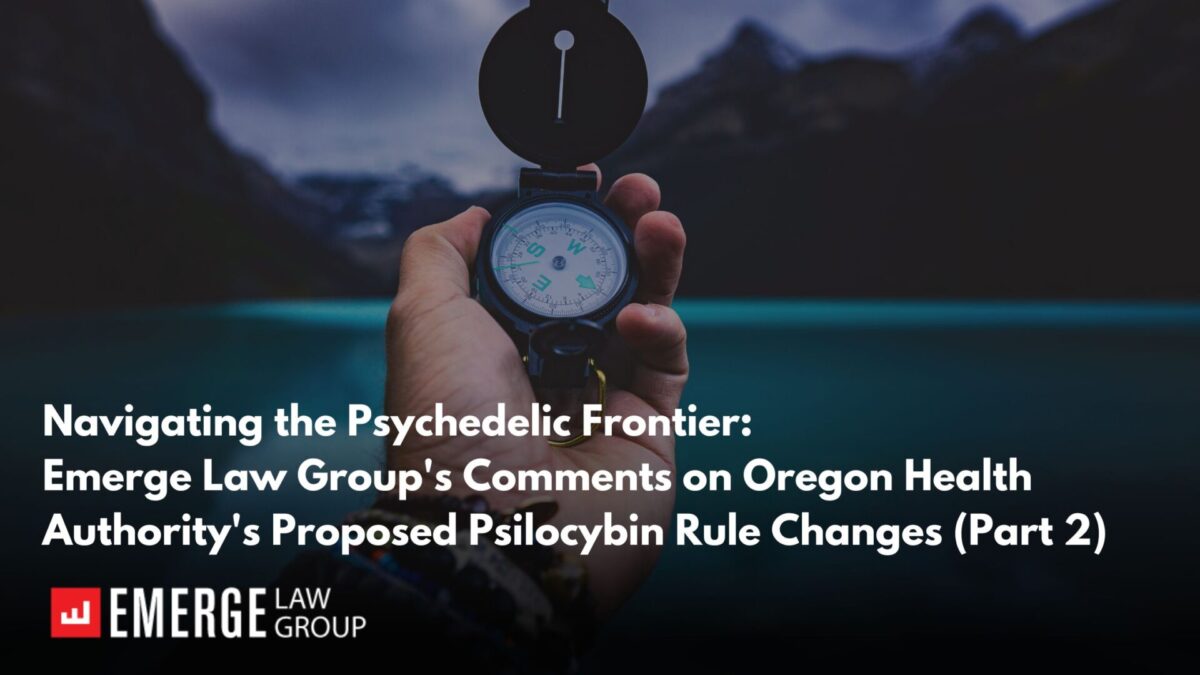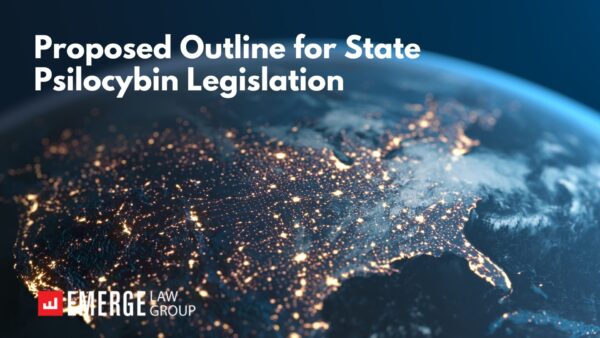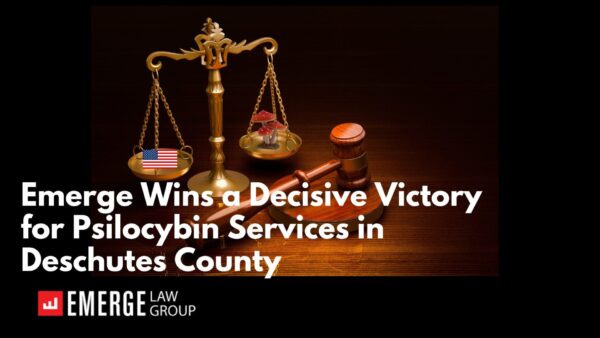Authors: Alex J. Berger, Attorney; Sean Clancy, Shareholder
Checking in with Part 2 of our public comment to proposed OHA psilocybin rule change summary. You can find Part 1 here. We expect OHA to adopt its final rule package in late December, effective January 1, 2024. For a comprehensive overview of our comments, please refer to the full document available here.
5. Concerns Regarding Licensed Premises Location Requirements (OAR 333-333-4300(6)(b), 333-333-4300(6)(c), and 333-333-4450(3))
Proposed OAR 333-333-4300(6)(b) would require service centers to provide OHA five days’ advance written notice every time the licensed premises is temporarily used for activities unrelated to a service center’s licensed privileges (such as a yoga studio or meditation space). Because the rule could inhibit the ease with which licensees could take advantage of non-psilocybin business opportunities, we proposed substantial revisions or outright deletion. We also highlighted the proposed rule’s vagueness regarding the information OHA would require for each notice and the lack of clarity regarding the rule’s purpose.
Relatedly, in OAR 333-333-4300(6)(c), OHA appeared to restrict non-psilocybin uses from occurring anywhere on a service center premises simultaneously with the provision of psilocybin services on the premises. This new prohibition struck us as overly restrictive, particularly for larger centers. And so, we proposed to narrow the proposed rule so that such non-psilocybin and psilocybin uses could occur simultaneously on the premises, but not in the same areas.
Lastly, in OAR 333-333-4450(3), OHA proposed to require indoor client administration areas to be “constructed in a manner that effectively maintains confidentiality for clients participating in an administration session.” While we agree that service centers should strictly maintain their clients’ confidentiality, there are several ways to accomplish this without having to construct fully enclosed administration areas, such as holding one administration session at a time. If adopted as written, this rule could require existing licensed service centers to make costly renovations when there are other less costly ways to maintain client confidentiality during administration sessions. We proposed a simple fix requiring service centers to use administration areas such that clients’ confidentiality is protected.
6. Record Retention Realities (OAR 333-333-4820(1))
Recognizing diverse business models, Emerge Law Group proposed changes to record storage requirements that would provide more flexibility for service centers and facilitators that operate independently, while ensuring that the pertinent licensee safely and securely maintains relevant client records. To date, OHA often appears to conflate facilitator and service center recordkeepers, which translates to expansive and unnecessary recordkeeping requirements. In reality, these are often independent operators who have different record retention systems.
7. Balancing Access and Privacy: 303 Data (OAR 333-333-4900(1), 333-333-4900(5), and 333-333-4910(2))
OHA’s proposed rules requiring licensees to collect and report certain client data pursuant to Senate Bill 303 struck us as somewhat confusing. The rules seemed to require a service center to deny a client psilocybin services if a client refuses to respond to a single SB 303 question, which would conflict with one of the Oregon Psilocybin Services Act’s main purposes – to provide psilocybin services access to all Oregonians. We proposed amendments which would allow service centers to provide services to clients who do not wish to share all information requested under SB 303.
8. Monetization of Client Records (OAR 333-333-4920)
OHA initially proposed a flat-out ban on licensees from monetizing any SB 303 data that a client provides. However, recognizing the potential benefits of licensee-client agreements for data use, we recommended allowing licensees to monetize a client’s data, but if, and only if, the licensee obtains specific authorization from the client and compensates the client.
Emerge eagerly awaits OHA to publish the final rules to see whether and how they address the issues we’ve seen over the past year and what we think can be further improved upon. We’d love to hear your feedback as well!
If you have any questions, don’t hesitate to contact lawyers from our Oregon psychedelics group regulatory team: Dave Kopilak, Sean Clancy, Alex Berger, and Kaci Hohmann.




